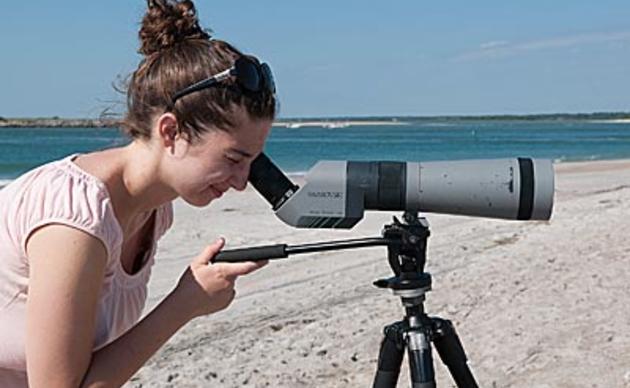Global Work to Save our IBAs
infographic and video.
 What do Pungo-Pocosin Lake, Lea-Hutaff Island and Highlands Plateau all have in common? They’re all home to some of North Carolina’s 96 Important Bird Areas (IBA). Audubon North Carolina’s IBA program serves to promote the conservation of vital bird habitat on a local and global scale. From the mountains to the coastal plain, scientists and conservationists are able to utilize IBAs to focus their efforts and protect declining bird populations.
Why IBAs?
IBAs have the ability to help bird populations survive and thrive! The 4.9 million acres that make-up our statewide IBA program are an integral piece of the conservation puzzle that brings together resources from partner organizations, researchers and citizen scientists all in the name of protecting our birds. These are essential habitats for one or more bird species of conservation concern during their annual cycle of breeding, nesting, migrating or wintering. Without healthy habitats for our birds to nest and rest, bird populations will decline.
IBAs have shown tangible results that can be felt across the state:
What do Pungo-Pocosin Lake, Lea-Hutaff Island and Highlands Plateau all have in common? They’re all home to some of North Carolina’s 96 Important Bird Areas (IBA). Audubon North Carolina’s IBA program serves to promote the conservation of vital bird habitat on a local and global scale. From the mountains to the coastal plain, scientists and conservationists are able to utilize IBAs to focus their efforts and protect declining bird populations.
Why IBAs?
IBAs have the ability to help bird populations survive and thrive! The 4.9 million acres that make-up our statewide IBA program are an integral piece of the conservation puzzle that brings together resources from partner organizations, researchers and citizen scientists all in the name of protecting our birds. These are essential habitats for one or more bird species of conservation concern during their annual cycle of breeding, nesting, migrating or wintering. Without healthy habitats for our birds to nest and rest, bird populations will decline.
IBAs have shown tangible results that can be felt across the state:

- Pungo-Pocosin Lakes – IBA data helped stave off the placement of a Navy Outlying Landing Field where jets could have collided with the thousands of Tundra Swans and Snow Geese that winter in the refuge.
- Lea-Hutaff – As bare sand habitat becomes increasingly scarce, Lea-Hutaff and other coastal IBAs become increasingly important for Black Skimmers and terns.
- Highlands Plateau – This IBA is one of North Carolina’s most important sites for a variety of migrating warblers and other northern species that are at the southern point of their range in Highlands. Several conservation organizations are working together to extend and enhance this IBA.
How you can help, right now
Donate to Audubon
Help secure the future for birds at risk from climate change, habitat loss and other threats. Your support will power our science, education, advocacy and on-the-ground conservation efforts.
Sign Up For Our eNewsletter
Keep up-to-date on all that happens with Audubon North Carolina's research, events and volunteer opportunities.








